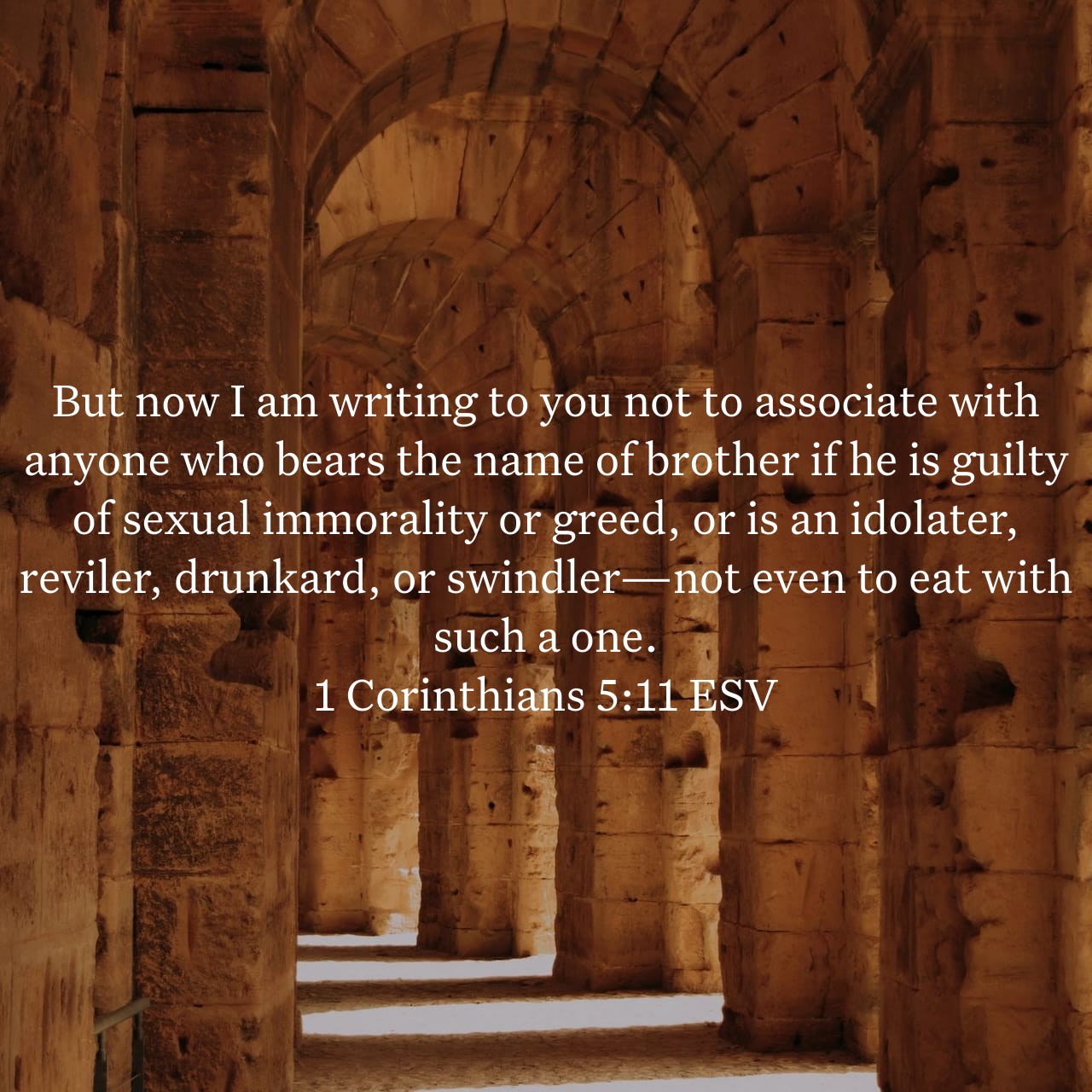Devotional 7 November 2025

The Corinthian church had become proud of its spiritual sophistication while tolerating what even the world condemned. They thought themselves wise, yet could not judge rightly. Their error was not only moral but spiritual. They confused separation from the world with holiness itself. Paul reminds them that holiness is not withdrawal, but faithfulness. Jesus Himself prayed not that His followers be taken out of the world, but that they be kept from its evil (John 17:15). The danger was not outside the church, but within it.
Paul draws a sharp line: it is not the world that must be judged by the church, but the church that must judge itself. God will deal with those outside (Rom. 2:6–8), but the household of God must guard its own purity (1 Pet. 4:17). To “purge the evil person” (Deut. 17:7) is not an act of cruelty but of covenant loyalty. Sin left unaddressed corrodes the body of Christ like leaven in dough (1 Cor. 5:6).
Judging rightly means grieving over sin and seeking restoration, not superiority (Gal. 6:1). It recognizes that the goal of discipline is redemption, not humiliation. The church is called to holiness because Christ, its Head, is holy (Eph. 5:25–27). To tolerate open rebellion is to deny the holiness of the One who bought us.
Holiness is not primarily separation from sinners, it is separation from sin.